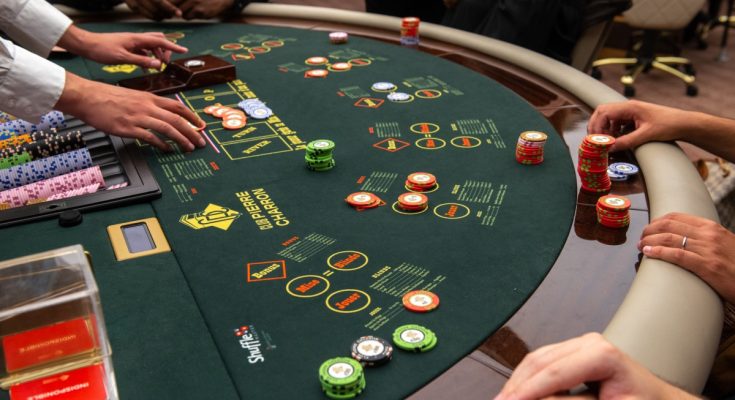Where You Play Shapes How You Play
Online gambling is a global phenomenon, yet players do not approach games with the same mindset or behavior. Geography – whether one lives in a remote village, a bustling city, or an enormous megacity – profoundly shapes their gambling style, motivations, and risk tolerance. What makes a rural player patient, and an urban one impulsive? Can infrastructure, culture, and pace of life affect decision-making on the roulette table or virtual slot machine? Absolutely.
Visit https://stake-casino-greece.gr/ and you might observe these differences in action – regional behavioral patterns embedded within digital playrooms.
This article explores these geographic variances through a multidisciplinary lens: behavioral economics, sociology, and even regional psychology.
Rural Players: Strategic Simplicity and Emotional Moderation
Slower Tempo, Longer Sessions
In rural areas, life unfolds at a slower pace. This rhythm often translates into more measured and patient gambling sessions. Village players may spend more time on a single game, aiming to understand it deeply rather than jumping from game to game.
Budget-Conscious Behavior
Limited disposable income means players from rural regions tend to bet conservatively. Their risk-reward assessments are cautious, with small, steady bets dominating their session logs. This isn’t due to lack of ambition but rather an ingrained culture of resourcefulness and frugality.
Community-Influenced Decision-Making
In smaller communities, behaviors are often communal. If a game or strategy becomes popular within a village peer group, it tends to spread like wildfire. Shared wisdom and collective trial-and-error form a sort of grassroots strategy culture.
Urban City Players: Time-Pressed, High-Risk, and Stimulus-Seeking
Speed and Distraction
City dwellers live in environments teeming with stimuli: noise, crowds, notifications. This hyper-stimulation often reflects in their gambling behavior. Urban players favor faster games like blackjack or turbo slots and tend to place larger, more impulsive bets.
Playing on the Go
With public transport and mobile-first lifestyles, urban players often engage in short bursts of gambling during commutes, lunch breaks, or late-night wind-downs. Their playstyle is fragmented yet intense.
Tech Savvy, Platform Agile
Urbanites are usually early adopters. They are more likely to try new casino platforms, leverage bonuses aggressively, and engage in multi-tab play. They often see gambling as a hybrid between recreation and high-adrenaline competition.
Megacity Players: The Hyper-Connected Gamblers
Social Play and Status Signaling
In megacities like Tokyo, New York, or Istanbul, online gambling becomes an extension of social identity. Players flaunt wins, engage in leaderboards, and sometimes treat games like a status economy. It’s not just about winning money – it’s about winning recognition.
Multi-Modal Playstyles
Megacity players blend rural patience with urban risk-taking. Depending on their mood or time of day, they might spend hours analyzing poker hands or burn through high-stakes slot rounds in minutes.
Anonymity and Behavioral Extremes
Megacities offer anonymity that smaller geographies do not. As a result, megacity players often engage in more experimental, and at times reckless, behavior. The perceived invisibility of their actions emboldens them to test strategies they might avoid in more connected social settings.
Infrastructure and Internet Access: The Technological Divide
Device and Data Access
Players in villages often rely on older smartphones or shared devices, limiting their gameplay to lighter versions of casino apps. In contrast, megacity players are more likely to have high-speed connections, 5G access, and the latest hardware.
Game Choice Constraints
Access affects preference. Rural players might favor games with low data usage and simpler interfaces. Meanwhile, players in advanced cities experiment with immersive, high-graphic games, live dealer experiences, and even VR casinos.
Psychological Disposition: Does Geography Shape the Mind?
Risk Tolerance and Pace of Life
Rural players, accustomed to stable, slower lives, exhibit lower risk tolerance. They view gambling as entertainment, not a career. Urban and megacity players, conditioned by economic volatility and faster decision cycles, tend to gamble more aggressively.
Emotional Regulation
Studies show that rural residents often have better emotional regulation and lower rates of anxiety. This manifests in their playing style as less tilt behavior (emotional betting after losses) and more resilience in the face of setbacks.
City players, especially from high-stress environments, may use gambling as an emotional release, which can increase susceptibility to addiction or loss-chasing.
Cultural Context: The Role of Tradition and Modernity
Gambling Norms and Taboos
In some rural regions, gambling may still carry cultural taboos or religious restrictions. These can create secretive, even ritualized behaviors around casino play.
In cosmopolitan megacities, gambling is often viewed as just another form of digital interaction – no more stigmatized than shopping or social networking.
Celebration vs. Isolation
Village players often gamble in a celebratory context: festivals, social gatherings, or after communal meals. In cities and megacities, gambling is increasingly private and solitary, often done on personal devices with headphones on.
Expert Insights: Behavioral Economists Weigh In
Dr. Natalia Stamos, Cultural Economist
“Gambling behavior reflects socio-economic rhythms. Where time is abundant, players savor the game. Where time is scarce, players rush for dopamine. Geography isn’t just backdrop; it’s a behavioral blueprint.”
Dr. Yash Mehta, Neuropsychologist
“Cognitive load varies across geographic settings. Urban noise, information overflow, and visual pollution cause quicker decision fatigue. This pushes city players toward faster, riskier games.”
Platforms Responding to Geographic Diversity
Geo-Tailored Promotions
Smart platforms now segment promotions based on regional behavior. Rural players might receive loyalty bonuses encouraging long-term play, while urban users are tempted with high-risk, high-reward flash tournaments.
Language and UI Customization
Villages with low-English proficiency benefit from platforms offering local language interfaces and visual instruction. Cities, with more diverse populations, prefer multilingual, globally oriented platforms.
Gambling and Socioeconomic Status by Region
Disposable Income vs. Gambling Intensity
It’s a myth that wealthier areas gamble more. In fact, gambling intensity often spikes in regions with lower economic opportunities. In rural settings, the hope of a life-changing win drives occasional but meaningful play. In cities, higher disposable income fuels higher frequency, not necessarily higher stakes.
Access to Support Services
Urban and megacity players usually have better access to mental health and addiction resources. Rural players may face stigma or logistical hurdles, making it essential that online platforms offer remote counseling options.
The Future of Geo-Aware Gambling
AI-Powered Personalization
Expect casinos to use AI to detect your playing rhythm and offer tailored experiences. Geography will influence everything from sound design to game speed. A player logging in from a village in Greece will soon see different UX than someone in Athens or Thessaloniki.
Data Ethics and Responsibility
While personalized experiences can enhance user satisfaction, they also pose ethical concerns. Should a casino encourage faster play for urban dwellers already prone to impulsivity? Geo-awareness must come with geo-responsibility.
Conclusion: Geography Is More Than a Location
Understanding the interplay between geography and gambling behavior offers new insights for players, developers, and policymakers. Where you live not only shapes your access to games, but your emotional approach, risk tolerance, and cognitive engagement with gambling.
Next time you spin a digital wheel, remember that your hometown might be influencing your style more than you think.




